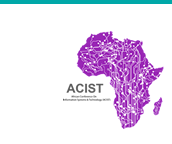Location
Harare, Zimbabwe and Virtual
Start Date
12-9-2024 11:00 AM
End Date
12-9-2024 11:25 AM
Description
Financial cybercrime is growing in South Africa. The elderly population are a particularly vulnerable demographic to financial cybercrime. This research explores the factors contributing to financial cybercrime vulnerabilities among elderly citizens in disadvantaged communities in South Africa. A theoretical model based on Routine Activity Theory (RAT) was constructed. Findings from in-depth interviews show that cybercriminals take advantage of the elderly’s technology inexperience, using clever social engineering tactics and deceit to access personal and financial information. The study establishes a direct connection between low technology literacy and increased exposure to financial cybercrimes in South Africa, showing a dependence on younger family members for protection and a significant gap in self-reliance and cybersecurity knowledge among the elderly in marginalised communities. This underscores the pressing need for wider societal and institutional support, as well as customised educational programs to improve digital literacy and cybersecurity knowledge in this group. The study found that the elderly are targeted because of their limited technological knowledge and experience.
Why the Elderly are Targeted for Financial Cybercrimes: A Case of South Africa
Harare, Zimbabwe and Virtual
Financial cybercrime is growing in South Africa. The elderly population are a particularly vulnerable demographic to financial cybercrime. This research explores the factors contributing to financial cybercrime vulnerabilities among elderly citizens in disadvantaged communities in South Africa. A theoretical model based on Routine Activity Theory (RAT) was constructed. Findings from in-depth interviews show that cybercriminals take advantage of the elderly’s technology inexperience, using clever social engineering tactics and deceit to access personal and financial information. The study establishes a direct connection between low technology literacy and increased exposure to financial cybercrimes in South Africa, showing a dependence on younger family members for protection and a significant gap in self-reliance and cybersecurity knowledge among the elderly in marginalised communities. This underscores the pressing need for wider societal and institutional support, as well as customised educational programs to improve digital literacy and cybersecurity knowledge in this group. The study found that the elderly are targeted because of their limited technological knowledge and experience.



